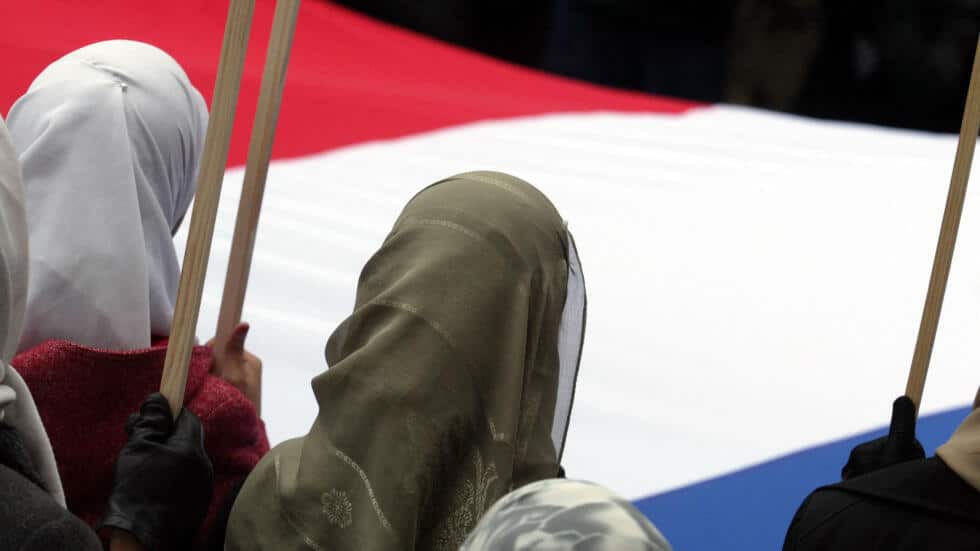di Redazione
In a report France confronts the Muslim Brotherhood’s quiet strategy to reshape society from within, raising alarms over national unity and democratic resilience

By Dr. Nidal Shoukeir (Professor of Strategic Communications and Governmental Relations)
The name of the Muslim Brotherhood has once again surged to the forefront of political and media debates in both Europe and the Middle East, following the release of an official French government report detailing the group’s activities on French soil. Authored by two senior government officials, the report is the result of six months of fieldwork and institutional analysis, culminating in a 73-page document that has sparked widespread controversy across French political and intellectual circles.
“Soft Infiltration”: A Reading of the French Report
What stands out in the report is not merely its documentation of the Brotherhood’s preaching and organizational activities, but its bold attempt to answer a deeper, more forward-looking question: What does the Muslim Brotherhood actually want? And what are its long-term objectives, particularly within Western contexts, and in France specifically?
The report concludes that the Brotherhood adopts a strategy of “soft infiltration”, penetrating civil society institutions, local and municipal councils, cultural and religious associations, and student unions. Rather than direct confrontation or overt ideological slogans, it builds invisible networks of influence that operate quietly to redefine the relationship between the individual and the state, and between religion and politics, in ways that conflict with the French republican model rooted in secularism.
What worries French policymakers is not direct violence, but what the report calls “silent empowerment”—the creation of parallel societal environments that encourage cultural and identity-based isolation and nurture a sense of alienation from the state. French authorities consider this trajectory a medium- to long-term strategic threat as it undermines social cohesion and leads to a symbolic rupture with the values of the Republic.
The Brotherhood’s Project: An Ideology That Denies Pluralism
To fully understand this approach, one must revisit the ideological foundations of the Brotherhood. Since its founding in 1928 by Hassan al-Banna, the group has never been merely a religious movement, but rather an ideological project with comprehensive political ambitions. From the outset, the Brotherhood promoted the idea that Islam is not only a spiritual system but a full-fledged political system—and that it alone represents this vision.
The Brotherhood has consistently politicized religion, using it as a strategic tool to attain power through a preaching-oriented discourse on the surface, but one that is political at its core.
A glance at the Brotherhood’s century-long track record—particularly in Egypt, Tunisia, and Sudan—reveals a pattern of non-integration and long-term empowerment strategies, grounded in dual messaging and tactical flexibility, adjusted according to local and international contexts, all aimed at a single ultimate goal: gaining power.
Even when the Brotherhood reached power—as in Egypt post-2011—it became evident that its commitment to democracy was opportunistic and conditional. The group pursued exclusionary politics, rejecting pluralism and political partnership, and even sought to impose its ideological vision on society at large, disregarding national diversity and unity.
As a result, the Brotherhood failed not only politically, but also religiously and socially, leading several countries to ban it altogether. It never offered a model of stable governance or a unifying national project, because it simply does not believe in the concept of the nation-state—only in the Brotherhood itself.
The deeper danger lies in the Brotherhood’s detachment from reality and a chronic identity crisis. It is neither purely religious nor purely political, but rather a hybrid social movement that shifts between a missionary cloak and a political suit as needed. Tragically, it still clings to a confused and failed vision, unworkable now or in the future—even a thousand years from now—because its very premise is built on exclusion and ideological domination, a kind of political and intellectual madness that no rational society could accept.
Early Arab Warnings and a Belated European Awakening
Arab states with firsthand experience of the Brotherhood—such as Egypt, Saudi Arabia, the UAE, and Bahrain—were quick to recognize and warn against its agenda, viewing it as a threat to social fabric and civil national identity. These countries took decisive actions, including designating the group as a terrorist organization and dismantling its financial and educational networks.
For years, however, many European countries—including France—tolerated or ignored the group, often in the name of free expression, or under the assumption that it represented a “moderate religious opposition.” This perception began to shift following a series of terrorist attacks and incitement campaigns, including those that personally targeted President Emmanuel Macron after the murder of French teacher Samuel Paty in 2020, a tragedy that shocked public opinion in France and worldwide.
Today, France seems to have finally grasped the scope of the threat. The realization may have come late, but as the saying goes, “Better late than never.” France is no longer alone—it joins a growing list of nations recognizing that the ideological ambiguity in the Brotherhood’s rhetoric is not a misunderstanding, but a deliberate tactic.
Hence, confronting this project requires a three-dimensional strategy:
-Deep understanding of the Brotherhood’s ideological and organizational structure.
-Strict legal and institutional countermeasures.
-Strengthening society with values of citizenship, openness, and integration.
In the final analysis, and as numerous reports and expert assessments have shown, the Muslim Brotherhood does not seek to integrate into existing systems, but rather to reshape them in its own image. That is why the challenge today is not merely a security issue—it is, above all, a civilizational and political battle.
And so the crucial question facing European policymakers today is this:
Have we waited too long to understand the true nature of this project?
or is there still time to build a comprehensive strategy of resilience and containment?
(Associated Medias) – Tutti i diritti sono riservati
L’articolo Nidal Shoukeir, “What Does the Muslim Brotherhood Really Want?” proviene da Associated Medias.



